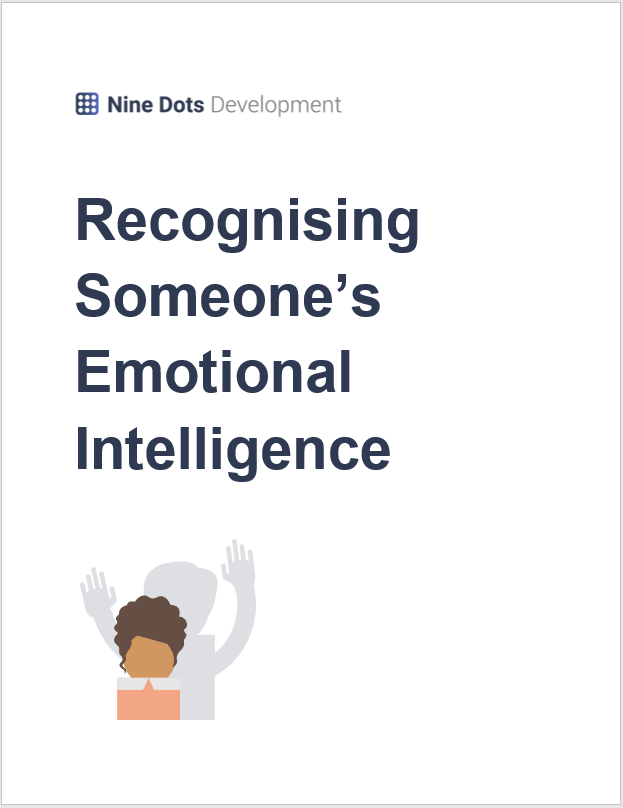Monday 21 Jun 2021 Article
The TakeawayThe True Meaning of Emotional Intelligence
What Does Emotional Intelligence Look Like in the Workplace?
Part 1 of 5
#EI #EmotionalIntelligence #RecognisingEQ
The perfectly matched resource for this article...
Download Our Free Guide to Recognising Someone’s Emotional Intelligence!
Please click below to download our free guide to Recognising Someone’s Emotional Intelligence!
Download our guide!Playing catchup?
The True Meaning of Emotional Intelligence
Understanding and demonstrating emotional intelligence in the workplace is key to driving greater job satisfaction and productivity.
It affects how staff interact with each other and how they perform in their role.
So what exactly is emotional intelligence and how can you spot signs of low emotional intelligence (EQ) in your staff?
What is Emotional Intelligence?
Emotional intelligence refers to one’s ability to perceive, understand and manage feelings and emotions.
Emotional intelligence is important in all aspects of our lives, including work.
Challenging and frustrating situations are inevitable at work; it’s how we tackle these challenges that matters, and it’s our emotional intelligence that determines how we handle stress.
The Impact of Leading with Emotional Intelligence
Emotional Intelligence is arguably most effective and impactful when applied in leadership and management.
A leader who embodies and practices high EQ is likely to:
Communicate their vision more clearly and effectively
Communicating a clear vision is crucial to ensuring that your staff’s priorities and individual targets align with your organisation’s strategic plans, helping drive your organisation onwards and upwards.
Be highly persuasive and can gain buy-in from staff
Being able to gain buy-in from staff is especially critical in the now normal that we are all living in, with many organisations facing large, unexpected changes; getting staff behind these changes is ultimately what makes them a success. Having high emotional intelligence allows leaders to better understand and overcome resistance to change through their understanding of others’ emotions and their strong, trusting relationships with employees.
Possess exceptional inspirational speaking abilities
Having high EQ enables leaders to better understand what inspires and motivates their staff, allowing them to deliver speeches and meetings in line with this, to make employees want to work hard and make them passionate about their work.
Respond appropriately to stressful situations
Being able to effectively manage their own emotions helps leaders stay calm and not lose their temper in stressful situations. This not only protects their relationships with their employees but also makes sure that leaders remain level-headed in crises and can effectively solve the problem(s) they are facing.
Act as a good role model
Demonstrating traits of high emotional intelligence encourages staff to behave in the same way; it’s human nature to want to “follow the leader”.
Ultimately, having emotionally intelligent leaders results in a more efficient, effective and productive workforce that is capable of achieving great things.
How to Recognise Someone’s Emotional Intelligence
We all have different levels of emotional intelligence, so how can you recognise someone’s EQ?
We have created a fantastic guide to the traits of high EQ and the warning signs of low EQ that you should look out for to help you identify others’ levels of emotional intelligence.
You can download this guide below!
---
Next up on The Daily Dot, we will be exploring the integral role that self-awareness plays in developing your emotional intelligence.
Until next time…
Download Our Free Guide to Recognising Someone’s Emotional Intelligence!
Please click below to download our free guide to Recognising Someone’s Emotional Intelligence!
Download our guide!Missed an article?
More from What Does Emotional Intelligence Look Like in the Workplace?
